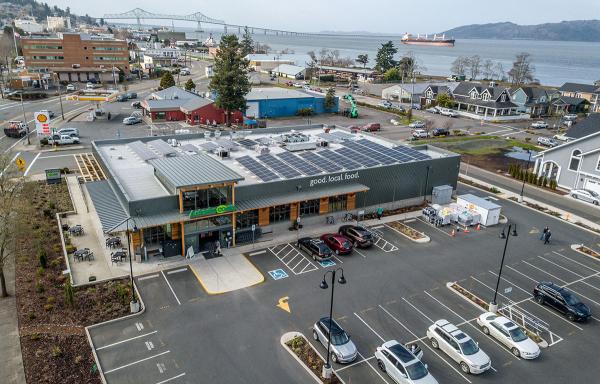In 2016, Bobbie Grubb’s manufactured housing community in Wisconsin converted to a cooperative-owned model, a move that would afford residents the power to control what happens in their community for the first time. Manufactured communities, or mobile home communities, provide many people in rural communities access to affordable housing. But although the homes are owned by the homeowners, the land is typically owned by a third party or outside investor, creating unique barriers for the community.
“In a lot of rural communities, it is the only homeownership opportunity,” said Victoria Clark-West, the Executive Director of the Northcountry Cooperative Foundation (NCF). “But we are losing the affordability of these communities. The separation of homeownership leaves the people very vulnerable. Today, there has been widespread economic eviction of the most vulnerable people in our neighborhoods.”
Converting to a resident-owned cooperative is one way that communities can combat this problem and have a say in the happenings of their community. When the owner of Grubb’s community began raising lot prices steadily year after year, it became a threat to the residents. As a Rural Cooperative Development Center, NCF helps rural people organize, start, maintain, or improve a cooperative business model and cooperative services. When they connected with Grubb’s community, the process began.
“It started out with one meeting,” Grubb said, Board of Director for her cooperative-owned community. “A lot of us were on fixed incomes at that time. Everybody went to the meeting and we all kind of agreed right from there that this something we wanted to do, because we couldn’t afford to have things keep going up.”
NCF can help communities like Grubb’s convert to a cooperative model in part thanks to USDA Rural Development. In 2020, NCF applied for a $200,000 Rural Cooperative Development Grant (RCDG) to help cover some of the costs associated with the conversion process.
“We rely on the RCDG as a core part of the way we enable this work and scale across rural communities,” said Clark-West. “When you invest in cooperatives you are investing in people and leadership development, and creating a pipeline for new, unlikely leaders. Cooperative ownership disrupts exploitation of homeowners. It is a launchpad for exercising power in other ways in the community.”
The RCDG program improves the economic condition of rural areas by helping individuals and businesses start, expand, or improve rural cooperatives through Cooperative Development Centers. Funds can be used to help conduct strategic planning, capacity-building, and more. NCF provides ongoing technical assistance to Bobbie’s community, including a yearly leadership training and access to a network of other cooperative communities throughout the country.
For Grubb's community, the conversion is a decision they don’t regret. “We are in charge of everything that goes on. We all set the rules, we all vote on the rules, it’s not just a board of directors or one person making a new rule in the community. Every person who is a member is a homeowner and in charge of making these rules. It makes for a peaceful community.”
To learn more about the RCDG program, visit the program page and RD’s Cooperative Branch Services page.

